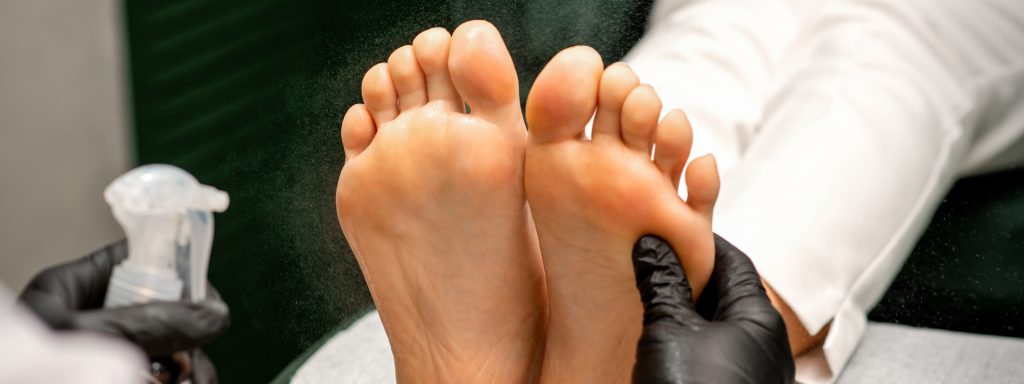How Can I Prove Pain and Suffering After an Auto Accident?
When you’re injured in an auto accident, the physical injuries are often just the beginning of your challenges. Many victims also experience pain and suffering, which can include emotional distress, diminished quality of life, and long-term physical discomfort.
Proving pain and suffering is crucial to securing fair compensation in a personal injury claim, but it can be a complex process that many don’t fully understand. At RTRLAW, we are dedicated to helping victims navigate this process and fight for the justice they deserve.
Important Considerations About Pain and Suffering in Florida
It is crucial to understand that simply filing a lawsuit does not automatically entitle you to compensation for pain and suffering. Florida law imposes specific requirements for claiming non-economic damages in motor vehicle accident cases. To potentially prove pain and suffering, you must demonstrate that you suffered one of the following, as outlined in Florida Statutes:
- Death
- Scarring
- Permanent Disfigurement
- A Permanent Injury within a reasonable degree of medical probability
If you cannot prove that your injuries meet one of these criteria, you typically will not be entitled to pain and suffering damages, absent exigent circumstances. This legal framework ensures that pain and suffering claims are reserved for cases involving significant or life-altering injuries.
christopher aguilar
I got an excellent personal injury defense from RTRLAW. Really good legal strategy, great internal communication and I got the results I wanted in no time. If anyone is facing any legal issues this are your guys great services and detailed communication
What is Pain and Suffering?
Pain and suffering refer to the physical and emotional distress caused by an injury. Unlike economic damages, such as medical bills or lost wages, pain and suffering fall under non-economic damages, which are subjective and harder to quantify.
What Are The Different Types of Pain and Suffering?
Pain and suffering can be divided into two main categories:
- Physical Pain: This includes chronic pain, limitations caused by your injuries, and the discomfort resulting from medical treatments, surgeries, or therapy sessions.
- Emotional Distress: Emotional impacts include anxiety, depression, post-traumatic stress disorder (PTSD), and the loss of enjoyment of life due to the accident. Emotional distress can significantly affect your ability to function, perform daily tasks, and maintain relationships.
With that being said, in Florida, even if you experience physical pain or emotional distress, you must still meet the statutory criteria to claim pain and suffering. For this reason, proving the severity of your injuries is vital to establishing eligibility for non-economic damages.
How is Pain and Suffering Calculated?
Unlike economic damages, pain and suffering do not have a fixed monetary value, making their calculation more complex. Courts and insurance companies often use the following methods:
1. Multiplier Method
This method involves multiplying your economic damages (e.g., medical bills, lost wages) by a number, typically ranging from 1.5 to 5. The multiplier is determined based on the severity of your injuries and their long-term effects.
For example: If your economic damages total $20,000 and the multiplier is 3, your pain and suffering compensation would be $60,000.
2. Per Diem Method
This approach assigns a daily rate to your pain and suffering and multiplies it by the number of days you’ve experienced hardship since the accident.
For example: If the daily rate is $200 and you’ve experienced pain for 120 days, your pain and suffering compensation would be $24,000.
Unfortunately, even if these methods apply, Florida’s injury threshold means that only those with qualifying injuries (as outlined above) are entitled to pursue these types of damages. This highlights the importance of medical documentation and expert testimony in proving your case.
What Evidence Is Needed to Prove Pain and Suffering?
Proving pain and suffering requires credible, compelling evidence that demonstrates how the accident has impacted your life. Here are the most common types of evidence used in these claims:
1. Medical Records
Detailed medical records are essential for documenting the physical impact of your injuries. These records should include:
- Diagnosis and treatment plans.
- Notes from doctors about your pain levels.
- Prescriptions for pain management or therapy.
2. Expert Testimony
Medical professionals, mental health experts, or vocational specialists can provide testimony regarding the nature, extent, and long-term impact of your injuries.
3. Personal Testimony
Your own account of how the accident has affected your life is crucial. Include descriptions of physical pain, emotional struggles, and changes in your ability to work or participate in daily activities.
4. Statements from Family and Friends
Loved ones can provide valuable insights into how your injuries have affected your behavior, emotions, and overall quality of life.
5. Pain Journal
Keeping a daily journal that documents your pain levels, emotional struggles, and missed opportunities can provide compelling evidence for your claim.
What Are The Most Difficult Challenges in Proving Pain and Suffering?
Insurance companies and defense attorneys often attempt to minimize pain and suffering claims by:
- Arguing that your injuries do not meet Florida’s statutory threshold.
- Suggesting that pre-existing conditions, not the accident, are responsible for your pain.
- Using surveillance to dispute your claims.
These tactics emphasize the importance of having an experienced attorney to counter these arguments and build a strong case on your behalf.
How RTRLAW Can Help You Prove Pain and Suffering
Proving pain and suffering requires a strategic approach, detailed evidence, and a deep understanding of Florida personal injury law. At RTRLAW, we are committed to helping you navigate this process and fight for the compensation you deserve.
- Comprehensive Evidence Collection: We’ll work with you to gather all necessary documentation, from medical records to personal testimonies, ensuring your claim meets Florida’s legal requirements.
- Expert Collaboration: RTRLAW partners with medical professionals, therapists, and other specialists to provide expert testimony that strengthens your case.
- Negotiating with Insurers: Insurance companies often undervalue non-economic damages. Our attorneys are skilled negotiators who push back against these tactics to secure the compensation you deserve.
- Litigation Support: If a fair settlement cannot be reached, RTRLAW is prepared to take your case to court and fight aggressively for your rights.
By combining legal expertise with personalized attention, RTRLAW ensures that your pain and suffering claim is handled with the utmost care and professionalism.
It’s important to remember that not all auto accident victims in Florida are entitled to compensation for pain and suffering. To qualify, your injuries must meet the statutory criteria, making evidence and expert testimony critical to your case. By working with an experienced legal team like RTRLAW, you can navigate these challenges and maximize your chances of securing fair compensation.
If you’ve been injured in a car accident and are struggling with the aftermath, RTRLAW is here to help. Contact us for a free consultation, and let our experienced personal injury attorneys guide you through the process, advocate for your rights, and fight for the compensation you deserve. Call 1-833-HIRE-RTR or email [email protected] to get started.


 CALL US NOW
CALL US NOW TEXT US NOW
TEXT US NOW



























